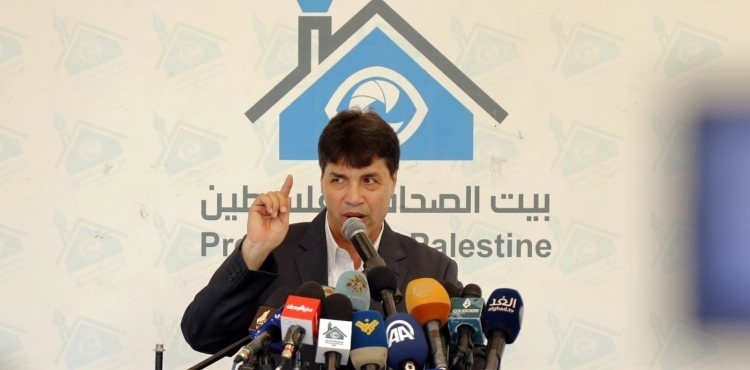Gaza _ Palestine News Network
The Sahel Municipal Water department has warned that many areas in the Gaza Strip are highly susceptible to the health of sewage rash and flooding the homes of citizens if sanitation services are stopped from those areas, as a result of the worsening electricity crisis and fuel shortages.
The waters of the Sahel municipalities said at a press conference in Gaza´s press house Wednesday: " This threatens the lives of thousands of people at any moment if the fuel shortages required for the operation of facilities such as those previously in Rafah, Khanyounis, Gaza and the north continue.
The continuation of the electricity crisis in Gaza, the increase in cut-off hours and the access of diesel required for the operation of water and sanitation facilities, especially after the end of the OCHA organization´s grant, has significantly impacted negatively on our potential to continue to provide the minimum required water services and sanitary drainage of citizens in all governorates of the Gaza Strip.
She stressed that this would lead to major crises and repercussions that directly affect the lives of citizens, with long-term water outages of up to a week and more, as well as reduced possibilities for sewage collection, treatment and pumping, which portends the possibility of rash cases of sewage, especially in geographically low-lying areas .
She added that the various facilities of the water and sanitation sector depended mainly on the electrical power to manage them, noting that any disruption of the electricity system directly affected the level of services provided.
The total energy required to manage these facilities in the current situation is estimated at about 30 MW and is distributed along the Gaza Strip, she said.
She added: " According to current conditions and in order to maintain the acceptable limit for water services, diesel fuel requirements were estimated at 250,000 litres per month to cover sewage pumping and treatment services, i.e. a total of 400,000 litres per month. "
She pointed out that most of the other wells work about 8 hours with electricity plus 6 hours in generators, which has lost the water production system for the most part about 40% of the natural capacity.
It noted that this reflected negatively on the per capita rate of water falling to 60 litres per person a day instead of 90 litres.
She explained that the daily rate of water production during the current period of the year decreased from 230,000 cubic meters per day to 170,000 cubic litres per day due to the electricity and fuel supply crisis that suffers from water production and pumping facilities.
It added that the disruption of electricity for long hours per day and the inability to manage reserve generators would weaken the sewage system.
She said the amount of sewage flowing into the sea and untreated is well-treated due to intermittent operational reality, with electricity dropping to about 110,000 meters per day with high levels of seawater contamination.
She noted that, due to the irregular treatment of sewage water, the organic load of treated and produced water was increasing from the environmentally and healthy limits to about 150-200 BOD mg per litre.
She stressed that the sewage collection and pumping system of various neighbourhoods and cities had deteriorated dramatically, with the risk of many places of tranquillity being exposed to flood risks and environmental and health contamination.
She warned that the continuation of the electricity crisis threatens a real crisis that will lead to a significant decline in the quality of basic services for citizens.
It called for concerted efforts by national institutions to find a speedy and lasting solution to this renewed crisis.
The Sahel Municipal water service appealed to all international humanitarian and relief institutions and United Nations organizations to intervene urgently to provide adequate quantities of fuel to alleviate the electricity outage crisis and enable the interest and municipalities to continue to operate their vital facilities and provide services For citizens.












